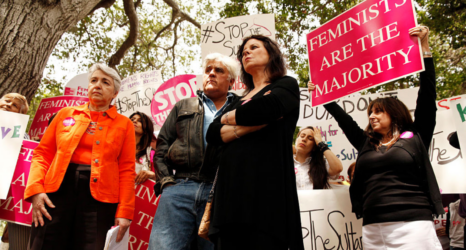A controversial bill signed by Utah governor Gary Herbert yesterday has been widely criticized for potentially criminalizing miscarriages–but the real danger of the new law is its potential to criminalize women who have abortions.
The “Criminal Homicide and Abortion Amendments” bill defines as homicide the death of a fetus caused by “intentional or knowing” acts by the mother. While it was revised to exempt legal abortion, the state’s existing abortion ban is so restrictive that it renders that exemption virtually meaningless.
Currently, abortion is illegal in Utah under most circumstances, per a state ban that NARAL Pro-Choice America calls both unconstitutional and unenforcable. Legal abortion is further restricted by mandatory delay and counseling laws, an abortion-refusal clause and laws inhibiting low-income women’s access.
The new “criminal homicide” law takes these a step further: Prior to its ratification, abortion providers alone were threatened with a felony for the provision of “illegal” abortions, but now women who obtain those “illegal” abortions can be charged with murder — as doing so constitutes an “intentional or knowing” act to cause the death of an “unborn child.”
Though touted by legislators as a response to an unfortunate incident in which a 17-year-old girl paid someone to beat her into having a miscarriage last year, this new legislation actually works in careful combination with existing anti-abortion laws to punish women for the choices they make.
Prior to its ratification, the bill was heavily criticized by pro-choice groups and feminist blogs including RH Reality Check, Salon Broadsheet and Choices Campus Blog.
Learn more about the anti-abortion movement via Ms. coverage.





